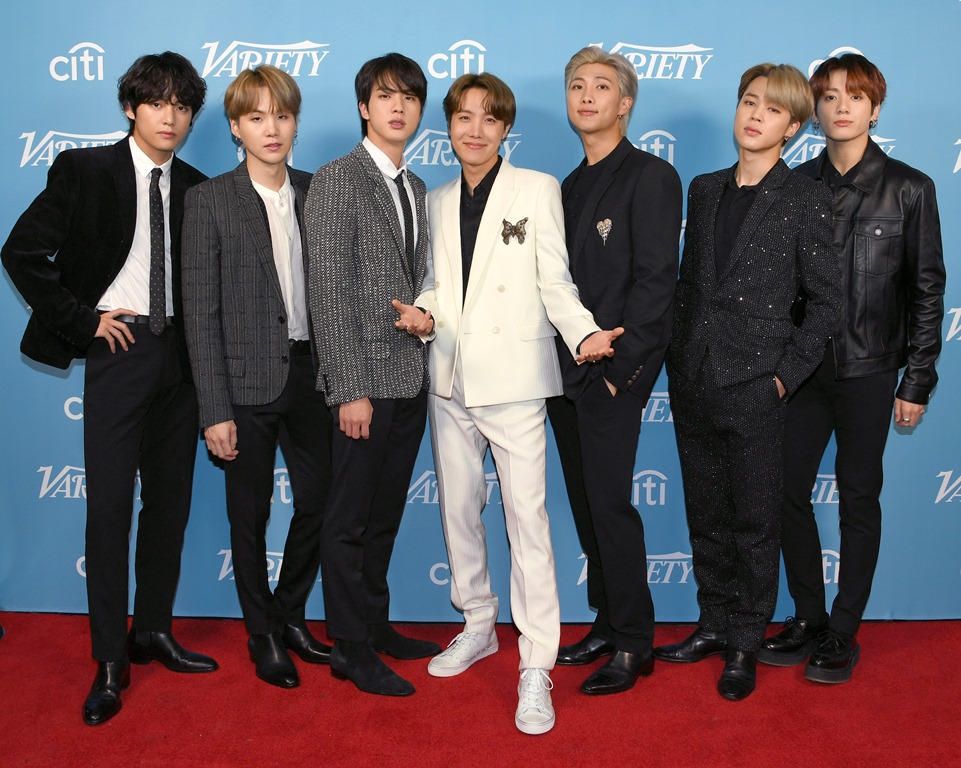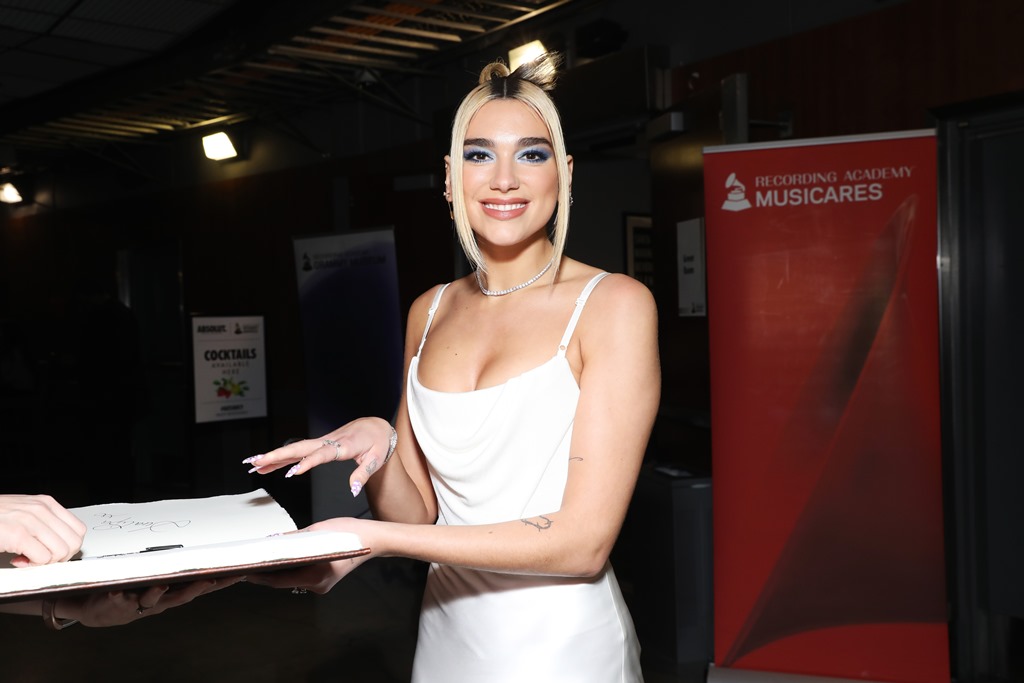The Soft Masculinity of BTS



Last weekend marked the one year anniversary of BTS’s appearance on Saturday Night Live, the first South Korean artists to perform on the show. They were promoting their then just-released album, Map of the Soul: Persona and its lead single, “Boy With Luv”, which went on to platinum certification in the US, even though it did not receive the radio play of other hits from 2019.
“Boy With Luv” is, as I’ve said before, the perfect pop song. It’s sweet and catchy, it’s impossible to forget once you hear it – which you’d know… if you’ve heard it. Lucy Ford wrote a great piece for Teen Vogue this week about the song’s viral impact and its significance, both to BTS fans and to the band members themselves.
Today is election day in South Korea and the reason I’m connecting this to BTS’s anniversary and their ever-accumulating achievements is because of what the band represents in their home country and what they can represent beyond, since they keep extending their reach. It’s been over 20 years since the launch of the Korean Wave, a movement supported by the South Korean government to make culture major national export. Parasite is now the reigning Best Picture Oscar winner. BTS is now the biggest band in the world and with the release of their latest album, Map of the Soul: 7, BTS secured its fourth consecutive #1 album on the Billboard 200; their album sales streak, by the way, is why The Beatles often come up when we talk about BTS’s chart-topping run. Because they’re the only band to be able to match some of these Beatles records.
The Korean Wave is not only a financial bonus for South Korea though. Ahead of South Korea’s election, The Economist published a special report on how Korean artists are influencing Korean society:
“The country’s arts scene and pop culture are just the most visible examples of the new model Koreans are devising for themselves” and both Parasite and BTS are exposing and challenging the “social divisions and inequality in South Korea and beyond”. Parasite was, among other things, a film about class and inequality. BTS indirectly, in how they present themselves to the world, in the themes they choose to sing about (mental health, self-discovery, identity), are also challenging stereotypes and barriers to equality. As I’ve noted before, their group image is an antidote to toxic masculinity. When you consider that BTS is “producing a whopping $4.65 billion of gross domestic product” for South Korea, you can imagine that the impact their success has on more than just the economy. Any academic will tell you that you cannot separate economics from social development.
So where the election is concerned, even as South Korea continues to recover from the pandemic as one of the countries hit early by the global health crisis, per The Economist, “When COVID-19 has receded, South Koreans will go back to challenging old structures and rigid expectations”. In particular, the expectations placed on women, as “South Korea is arguably the worst place to be a working woman”.
Women don’t earn much as men (by a third), they don’t work as much as men do, and even if they are part of the workforce, their domestic labour is not accounted for and valued. According to The Economist:
“Sexism is a huge problem [in South Korea]. In 2018, two-fifths of young women surveyed by the city of Seoul said they had suffered violence from a partner. In another survey, 70% of the women polled said they had been sexually harassed at work. The gulf between what Korean men and women want from a marriage is so great that many women refuse to get hitched or have children. South Korea has the world’s lowest fertility rate… [and] That probably won’t change until men do.”
This, then, as it is in the rest of the world, is still a patriarchal society. But their biggest celebrities (and celebrity exports) happen to be male, seven young men who are constantly hugging each other, and playing with each other’s hair, and saying “I love you” to each other, and openly crying when they’re sad or happy, and wearing makeup and trading makeup tips, and perming their hair, and, on a recent episode of their reality show, Run BTS!, they went to a flower shop to learn how to become florists.
Kim Isaac is the florist who worked with the band for the episode and in an interview for Teen Vogue he tells the magazine being a florist in South Korea is considered “women’s work” but that’s precisely why BTS wanted him to be a part of it. Their producers told him that the fact that Isaac is young and male is exactly what the band would want to highlight. And if you’ve seen the episode (I’ll link to it below), you’ll note how they responded to him. All seven of them were immediately ….kinda crushing on Isaac. They complimented his style, they talked about how handsome he is, a few of them were actually pretty flirty – all of these interactions were cute and they were SOFT. Nobody was grunting and performing dickness, nobody was running away from any assumptions or suggestions that this experience, being surrounded by flowers and tasked with making all kinds of flower arrangements, in the presence of a pretty male florist, was too feminine or, you know, “gay”.
And all of that together makes them desirable to their fans, millions of women of all ages, not just in South Korea but beyond. For their younger fans especially though, this is the model of “man” that’s forming in their minds now, the model that they expect to encounter in their families, their friendships, and perhaps their romantic relationships. What effect will that have on men’s behaviour and perspective, especially for those who don’t connect with the “hard bro” version of gender performance? What impact, if any, will it have on the patriarchy?
Here’s Suga encouraging South Korean ARMYs to vote today:
아미들 오늘 투표하셨나요? 저는 멤버들과 사전투표를 했습니다 후후
— 방탄소년단 (@BTS_twt) April 15, 2020
얼른 투표 마치고 아미 여러분도 뒹굴뒹굴해보세요
행복해진답니다 #BOTD #BTS_OF_THE_DAY pic.twitter.com/qTir4pBkmg
And here’s how they were reporting the election results in South Korea today – set to BTS’s “IDOL” and with the candidates animated to the “IDOL” choreography, LOLOLOLOL.
.@BTS_twt 'IDOL' and its choreo used as BGM while showing election results ㅋㅋㅋㅋㅋㅋhttps://t.co/gJIAHtjjHM
— BTS Charts & Translations (@charts_k) April 15, 2020
And here’s the florist episode of Run BTS! with English subtitles. If you don’t want to watch the whole thing, just stick around for the first few minutes. That’s when they get all gushy about Isaac:
https://www.youtube.com/watch?v=GF8qfnWEnH8

